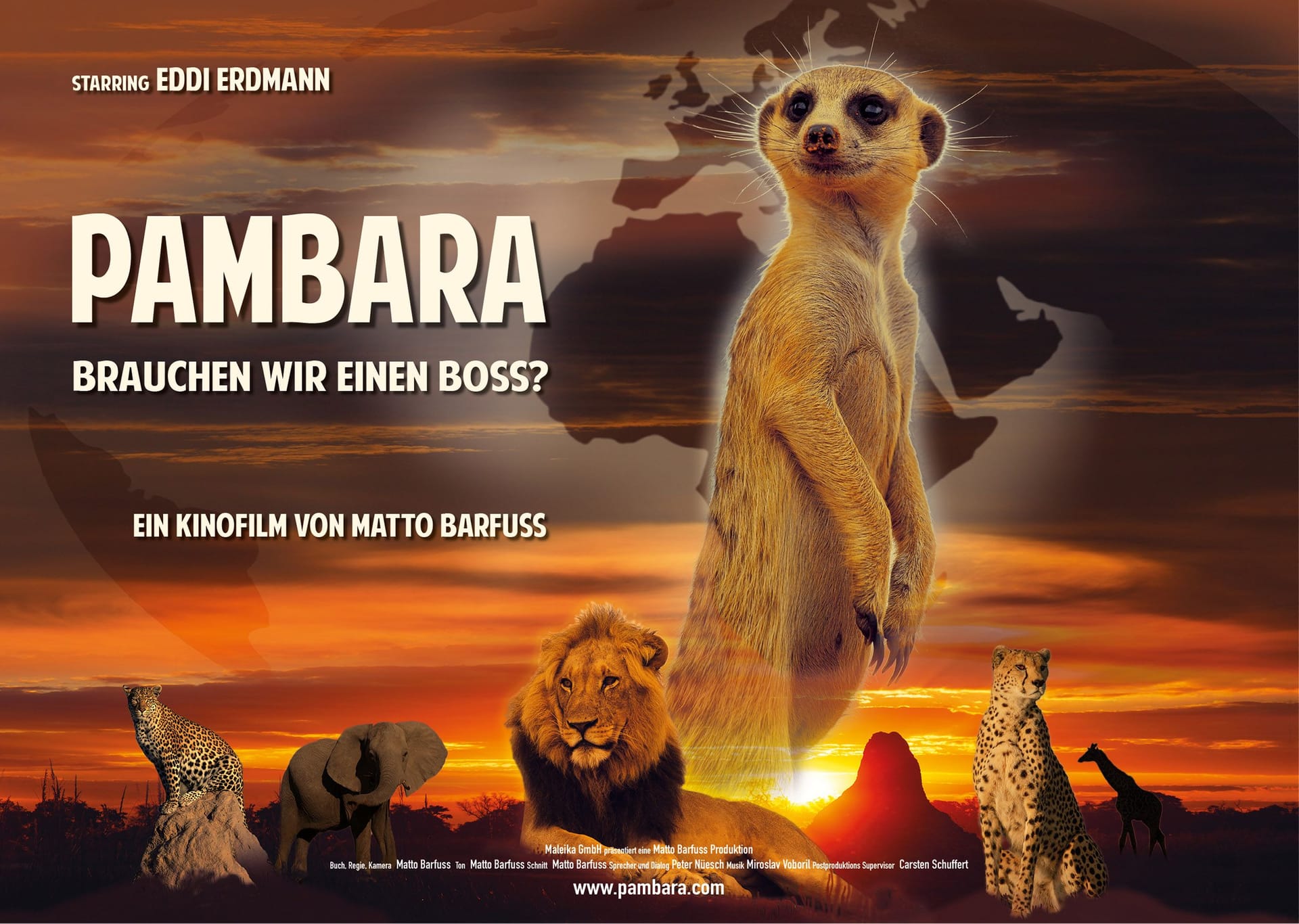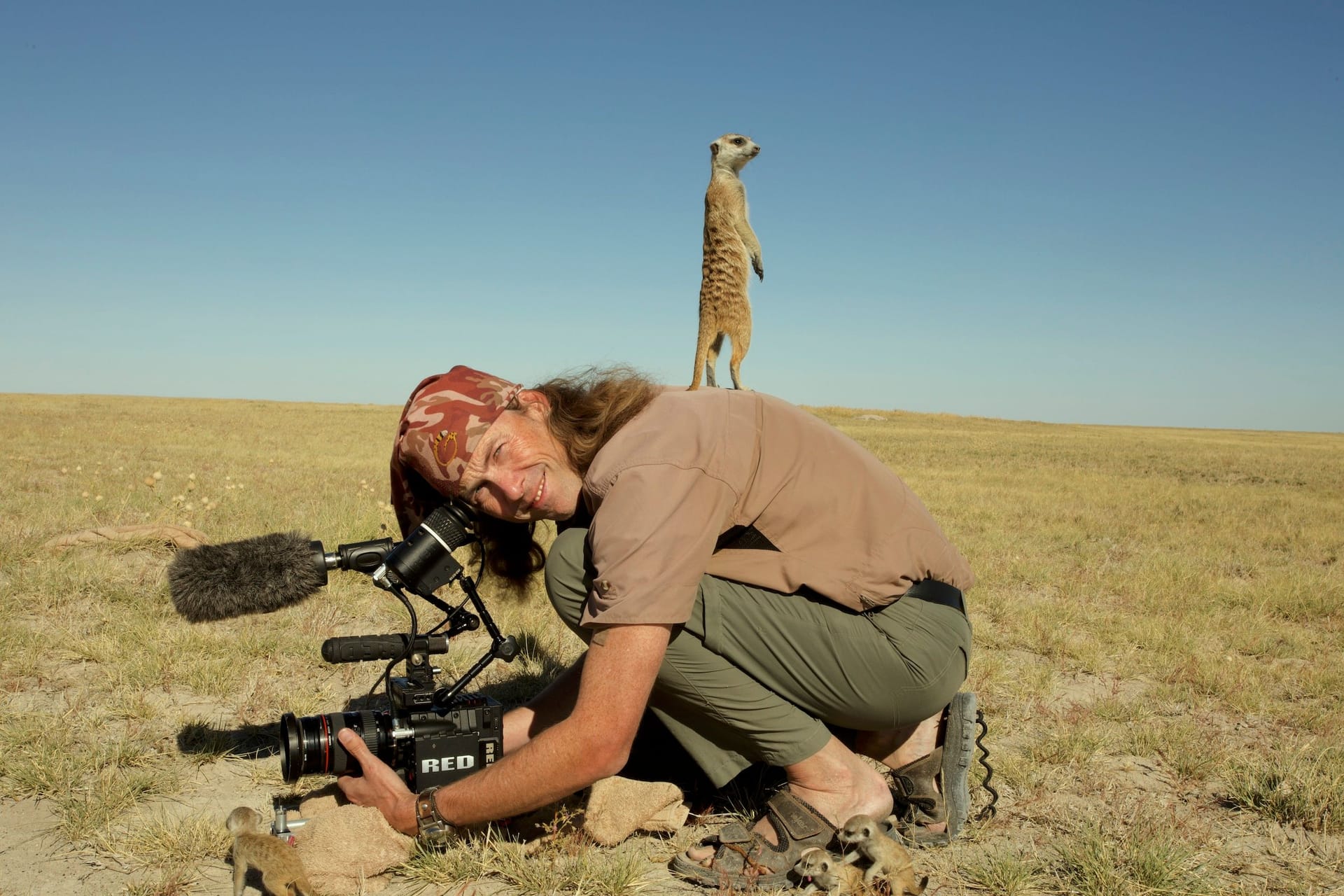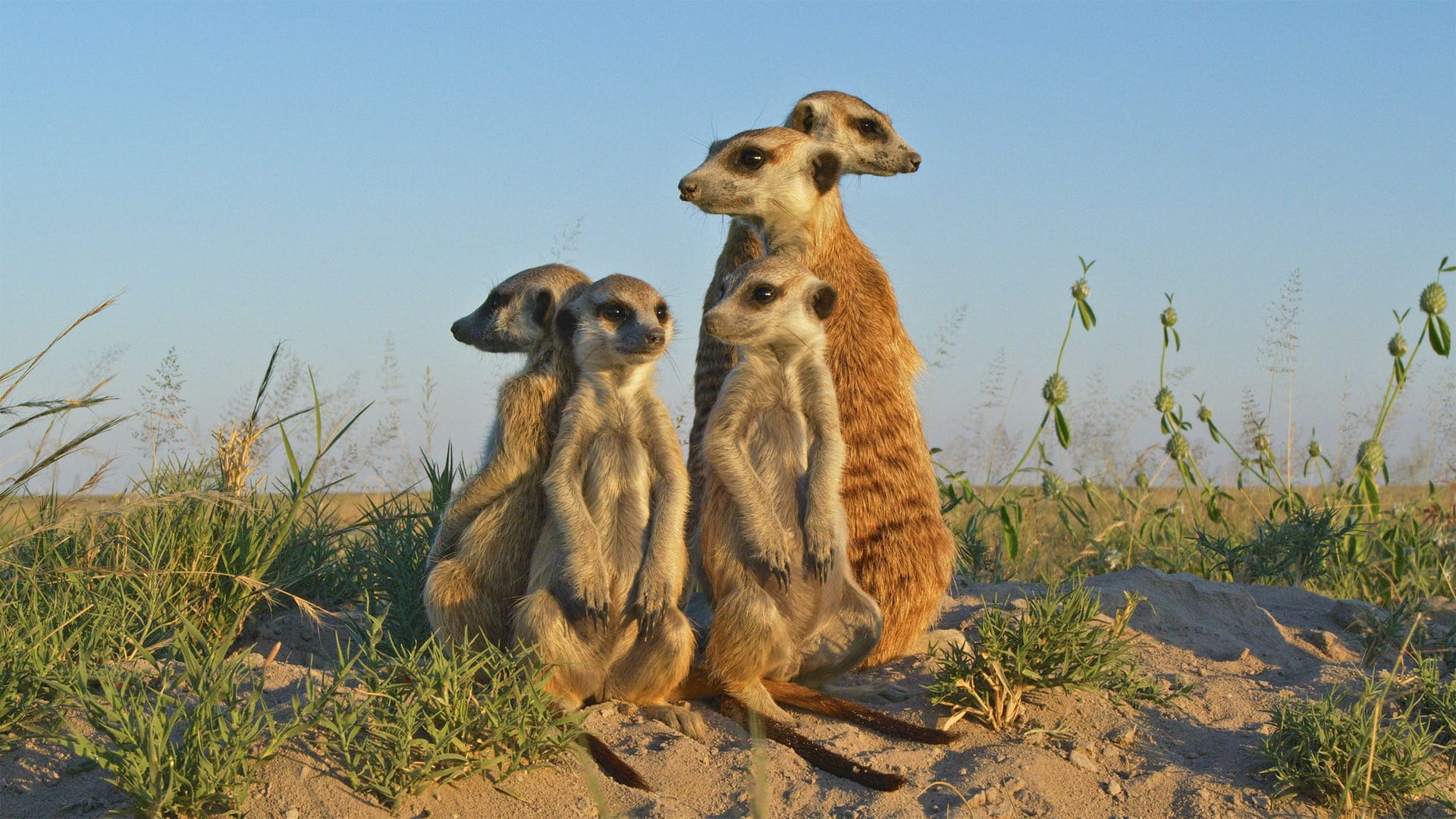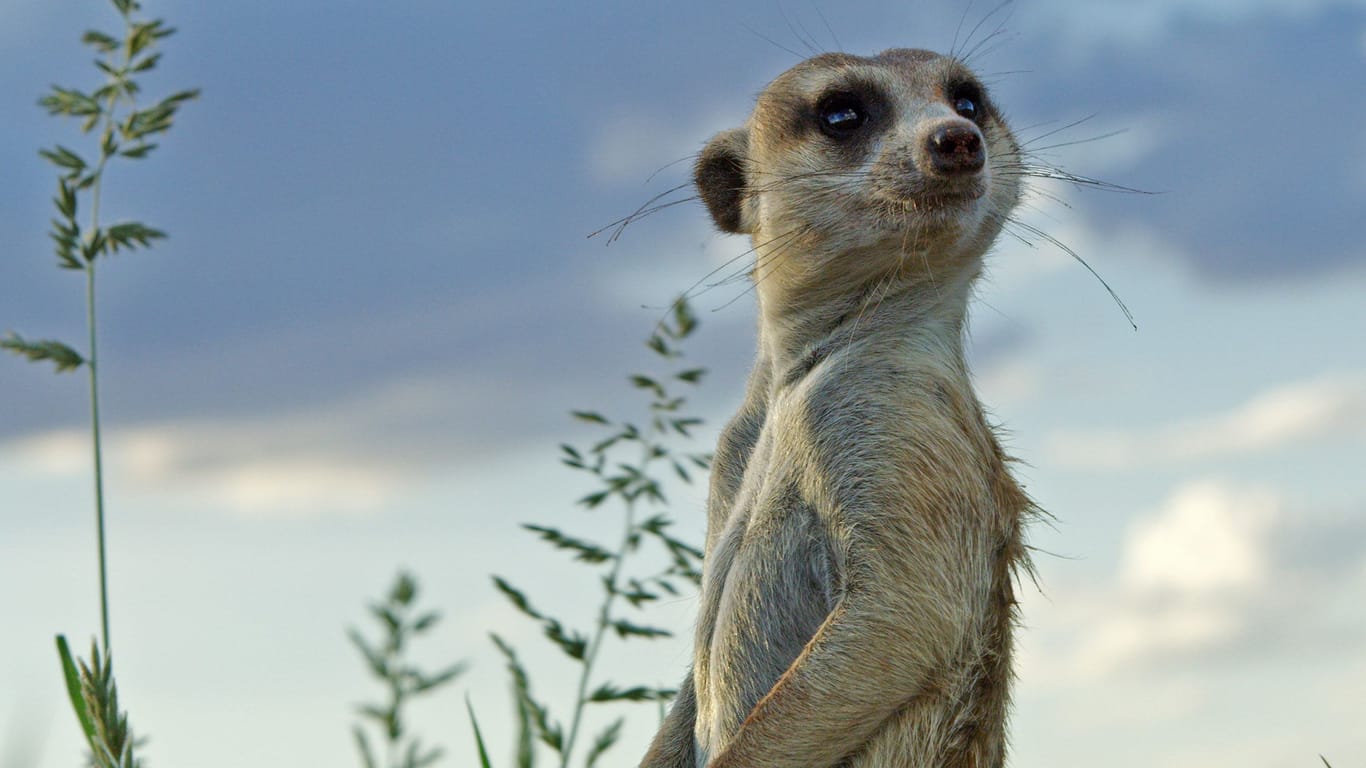Matto Barfuss has been an artist since he was twelve years old – and an environmental activist for many years. Nevertheless, he is critical of modern forms of climate protest.
He crossed the Alps barefoot, lived with a family of cheetahs in Kenya for more than half a year and has now spent eight years intensively getting close to an animal: the meerkat. This refers to Matto Barfuss, artist, species conservationist, filmmaker and environmental activist. t-online spoke to him about his latest project. The 53-year-old is releasing a film in cinemas this week: “Pambara – Do We Need a Boss?”
Barfuss, whose real name is Matthias Huber and has had his stage name since his 260-kilometer-long Alpine crossing in 1989, filmed in the African wilderness and spent a “high six-figure” amount on his own initiative, as he reveals. “I have been spending 6 months a year in the African bush for 30 years now. My method of production is that I continually tell the stories of my animal friends. Sometimes I know lions, cheetahs and meerkats almost from their birth to the end,” says he.
“A philosophical fairy tale in Disney style”
He doesn’t describe his new film as a documentary, but rather as “a philosophical fairy tale in Disney style with a lot of depth.” Barfuss tells a creation story from the perspective of the meerkat Eddi. The dispute over who is boss of the ecosystem also exposes the climate crisis as a man-made catastrophe.

“With the film I want to ensure that humans finally move away from seeing themselves as the crown of creation. We are one of around 8.9 million species and we don’t know when the critical moment would be reached for us “We have to fear our own survival,” says Matto Barfuss, pointing out that more modesty would be good for people.
“Can’t find food because they would burn their paws”
It was clear to the filmmaker from the start that he wanted to put the meerkat at the center of his new story. “Meerkats are cute and very close to us humans,” he explains the choice and adds: “They often stand on two legs, have a lot of facial expressions and a variety of communication skills.” In addition, the animals in their African habitat are five times more affected by global warming than the global average. “Their immune system suffers greatly as a result, mortality increases as a result and they often cannot look for food during the hot times of the day because they would burn their paws in the sand.”

Matto Barfuss attests that society is suffering from “climate burnout”. Many people would ignore the topic and push it aside: “In dialogues, I often notice that people are unsettled and overwhelmed by all the facts and figures.” That’s why he chose the entertainment approach , telling a captivating story with pretty pictures and impressive shots from the wilderness. “As a filmmaker and artist, I see it as my duty to take away people’s fear of complexity, to reach them emotionally and then to introduce them to the topic,” he says about his fight against people’s crisis fatigue.
This is precisely why he is critical of some forms of protest for the protection of the planet. After all, Barfuss has been active in this area for decades: “As an artist, I have spent my entire artistic life searching for the right way to sustainably inspire people about the topic.” He also took to the streets as a teenager, but experienced “a lot of disappointment” at “not having achieved more”. His belief is that you can “reach people much better and, above all, more sustainably with beautiful pictures, with humor and emotion.”
“It seems to me sometimes a little confused and without concept”
He is therefore critical of the so-called “climate glue” of the “last generation”. Any protest that “moves something constructively forward” is appropriate, but that’s exactly what he doesn’t see with this movement. “That’s why I sometimes have problems with the forms of protest. I think you can act within the framework of a social consensus. More concrete suggestions and more tangible implementation would be good for the movement. It sometimes seems a little confused and without a concept to me,” said the long-time environmental activist to the “Last Generation”.

But Barfuss not only takes aim at the radical climate demonstrators, he also finds critical words towards the current federal government . “I miss the aspect that the federal government also responds to citizens in a more motivating way.” Rather, it has to be about conveying the fun of the thing. “In the federal government, everything is sold as regulations and laws instead of working out and communicating how great it is to create a basis for a future worth living,” says Barfuss.
It is problematic that citizens see “all measures as a restriction on their personal freedom”. “It doesn’t have to be like this. Everyone knows that things can’t go on like this,” he says. His approach would be comparable to that of his latest film project: “Why can’t we find a consensus with politics at the top to turn things around with optimism and joy?”

